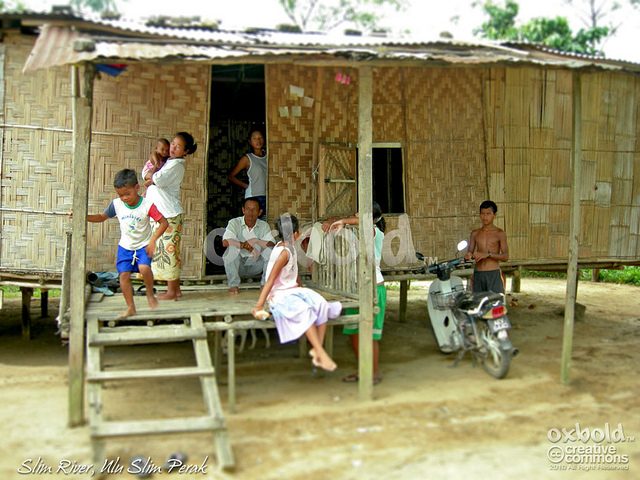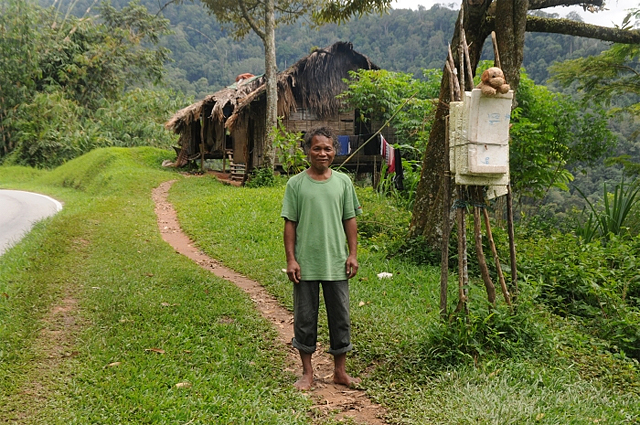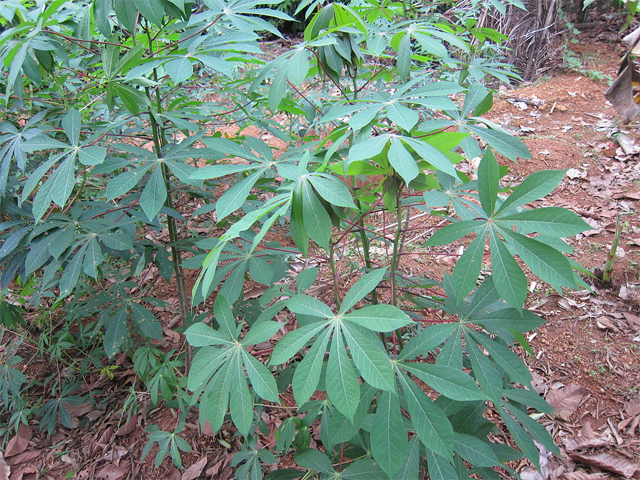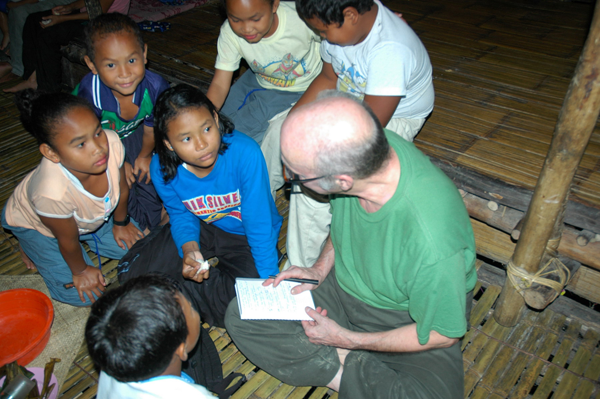An elderly leader of the Semai in Malaysia’s Perak State has advised all members of his society to vote against the ruling political party in important national elections. Gahrai Kadek, the 77-year old Tok Batin (leader) of the Semai in the state, advised the Orang Asli people to vote out the Barisan Nasional (BN) government because of its encroachments on their traditional lands.

According to a news story last week, the Semai leader decried the practices of the state government in depriving them of economic opportunities, of not providing potable water or electricity for their communities, and of leaving them to eat tapioca, a starchy extract of cassava roots, three times per day. But he said he has accepted those realities. What he did not accept, and urged his followers to strenuously reject, is the deprivation of their lands.
His comments were telling. “What we will not accept is the encroachment on our land, which is protected by customary common law rights, on our ancestral graves, on the river in which we swim and fish and from which we drink, and on the jungle in which we plant tapioca, yam and bananas to eat.”

Gahrai Kadek is from Kampung (village) Gesau, on the Slim River, which is in the southeastern corner of Perak about 45 miles south of Gopeng, where the disapproval of the construction of a dam on the Geruntum River was described in a recent news story. The current Semai story, as well as the anger of the Tok Batin last week, has been prompted by the government’s disregard for the traditional lands of the Orang Asli people.
“We have tolerated so much over 60 years, but we will not stand for them seizing our forefathers’ land and destroying our rivers. We were already marginalised before they did all that,” the Semai leader said.
The reporter interviewed Semai in other communities along the Slim River. Tok Pui Nai, a 78-year old leader in Kampung Tibang, indicated that the major worry for the people in his village was that their lands were not gazetted. They were afraid that the people who had encroached on their lands would take their houses next. He also complained about pollution in the river, which makes it unsuitable for bathing or fishing. He expressed concerns about a hydroelectric power dam being built on the river next to the village by Perak Hydro Renewable Energy Corporation.
Yuk Lupa, the chief of Kampung Keding, told the reporter that it had taken the BN government 60 years to build a road into his village. He expressed his disgust about the government. Although the request for road access dated from their grandparents’ time, the government has just built one. But there have been threats that their lands would be taken away from them, so they have lost faith in the BN government. “I do not want to vote come election day,” he told the reporter.

The reporter spoke with a 32-year old man from Kampung Pos Tenau named Prima. He had the flag of a rival political organization, the People’s Just Party or PKR, draped around his shoulders as he spoke. He said he has had to be content with eating tapioca all his life (he is 32) because of the BN government.
Other villagers that the journalist spoke with expressed similar sentiments: since they have no economic opportunities, they have had to survive on tapioca. Many made it clear that they were blaming the current government for their lack of opportunities, which made it impossible for them to even consider moving to a town. They simply don’t have the funds that would allow them to do that. The 14th general election, referred to by Malaysians as GE14, was set for Wednesday May 9.

The frequent references by the Semai quoted in the news report—they are so poor that they are reduced to surviving on tapioca—are a bit puzzling. Robert Knox Dentan’s 1968 book The Semai: A Nonviolent People of Malaya clears up the matter. In a section in which he described their various food crops, he wrote that the Semai grow tapioca, which they find to be unappetizing, because it has two advantages over yams and taro. One is that the tapioca roots don’t rot if they are left in the ground—the farmer doesn’t have to hurry to harvest them at any set time.
Secondly, “tapioca produces more food per acre than any other crop,” Dentan wrote (p.47). One might suspect from all the negative comments last week by the people about it that they are quite tired of their traditional staple and yearn for the consumer goods and food choices enjoyed by other citizens of Malaysia. Perhaps their votes in the election will help them out.